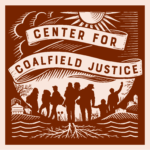
FOR IMMEDIATE RELEASE
October 26, 2022
Contact: Virginia Alvino Young, virginia@sequalconsulting.com
GOV. WOLF’S PROPOSED BACKROOM TAX BREAKS FOR OIL AND GAS WOULD COST TAXPAYERS BILLIONS
—–
The record-breaking subsidies for an infeasible hydrogen hub won’t create jobs or wealth for the communities most harmed by fracking.
HARRISBURG, Pennsylvania —— Pennsylvania state leaders are working on an energy bill to provide new subsidies for the fossil fuel industry, which is responsible for the vast majority of climate-warming emissions. Governor Wolf and his allies want taxpayers to fund an annual $80 million tax break for natural gas, including a so-called hydrogen hub and network of volatile pipelines.
The hubs are designed to convert fracked natural gas into hydrogen. But Ohio River Valley Institute research shows that contrary to proponents’ claims, hydrogen technology isn’t scalable or proven to be safe, effective, or even job-creating, and would lock us into a future with continued dependence on fossil fuels.
“Pennsylvanians are ready for a true clean energy transition rather than one that still depends on fossil fuels. Renewable energy is a safe, clean, and increasingly cheap energy source,” said Veronica Coptis, executive director of the Center for Coalfield Justice. “To ensure the type of planet we want to provide future generations, we can’t rely on the same boom-and-bust industries that have extracted from this region for decades.”
“Once again elected officials are working behind closed doors to give more tax breaks to fossil fuel companies while ignoring Pennsylvania communities already suffering from health and environmental impacts of this polluting industry,” said anaïs peterson, Earthworks petrochemical campaigner. “Real leaders would be fighting to bring economic prosperity and truly clean and renewable energy opportunities here instead of more pollution.”
“There are at least 20 coal counties or disadvantaged counties in the state. We should be talking about economic development in these struggling counties and investing in the solutions that people actually want and need. We deserve thoughtful, deliberate policies to address the climate crisis, not more fossil fuel giveaways,” said Sarah Martik, campaign director for the Center for Coalfield Justice.
###
